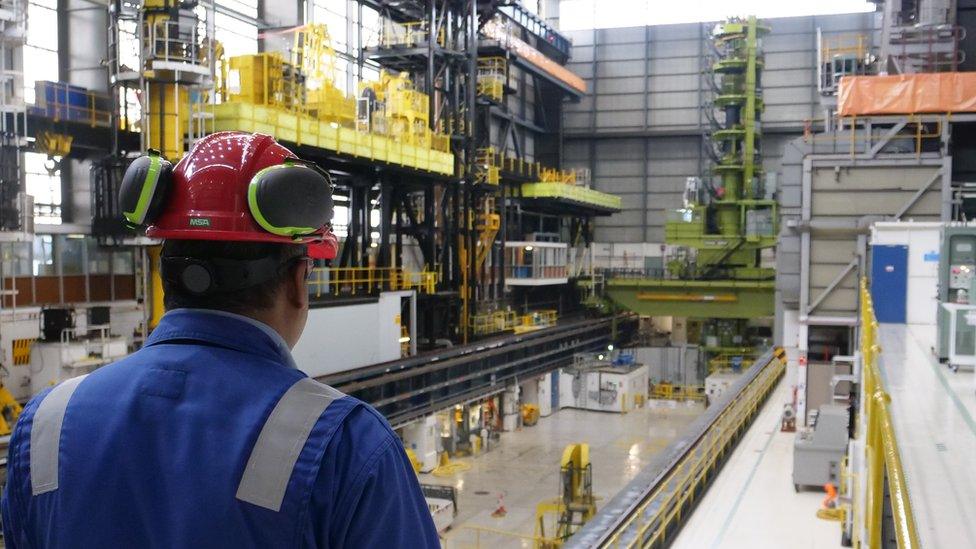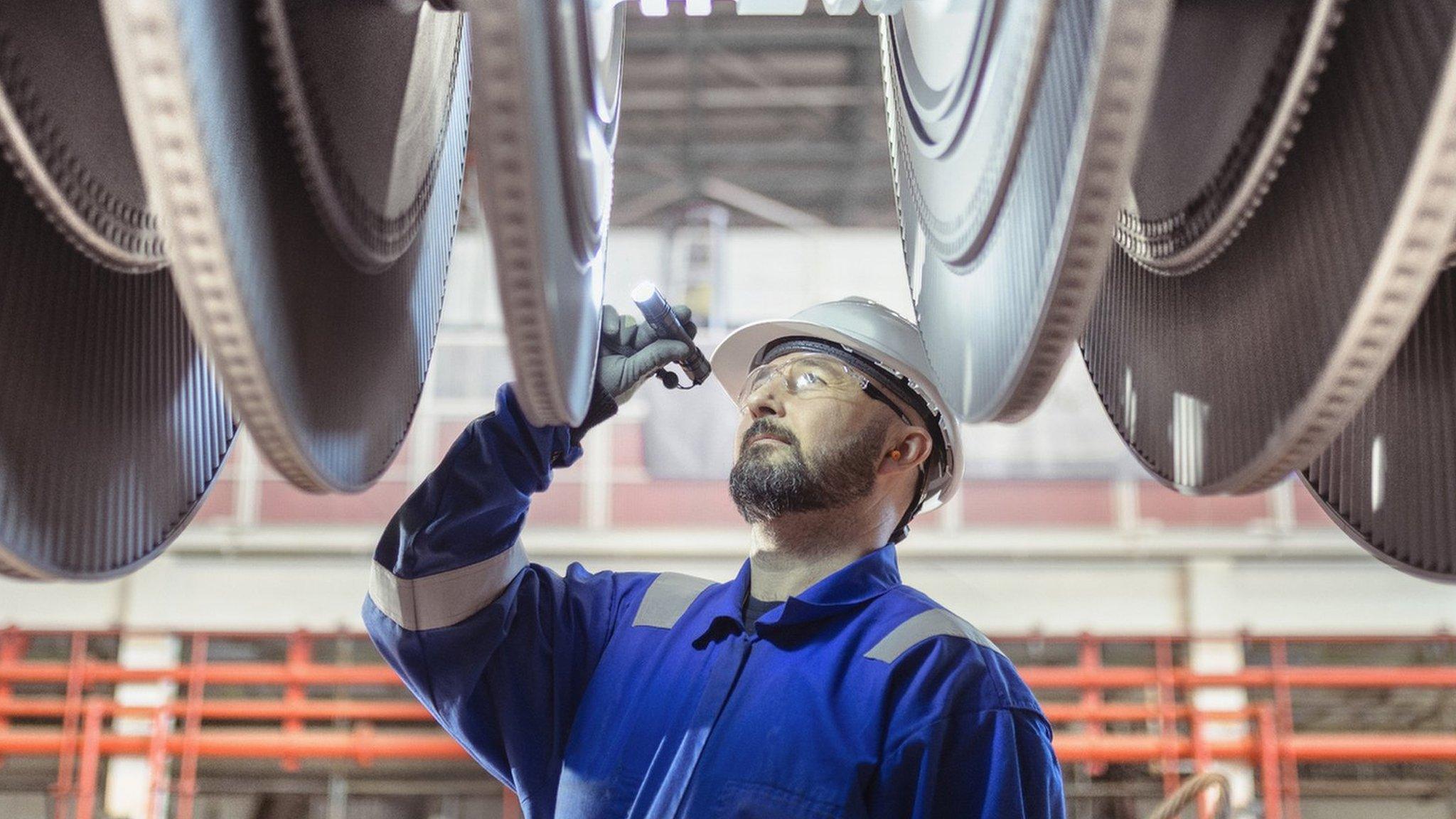Does nuclear power have a role in Scotland's energy future?
- Published
- comments
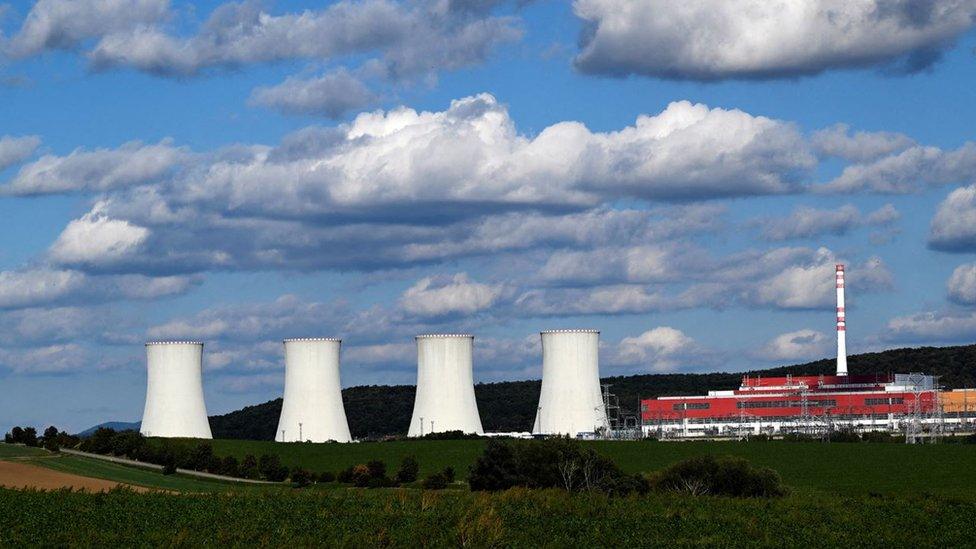
New nuclear developments - like this one in Slovakia - could be a common sight under a new global agreement
The Scottish government has rejected calls to end its effective ban on the building of new nuclear power stations.
But with a host of world powers agreeing to boost nuclear projects as part of the drive for net zero carbon emissions - a campaign close to the Scottish government's heart - will this position hold?

Has there been a global shift on nuclear?
There was a time, when Germany announced it was winding down all of its nuclear power plants, that nuclear power felt like might be on the way out.
It certainly didn't feel like a particularly green enterprise, with memories of Chernobyl and other disasters lingering in collective memory.
But since then there have been developments in nuclear fusion - a potentially cleaner and more powerful form of energy generation which had long been talked about, but seemed out of practical reach.
And then there's the climate crisis and efforts to reach "net zero" carbon emissions, while maintaining energy security.
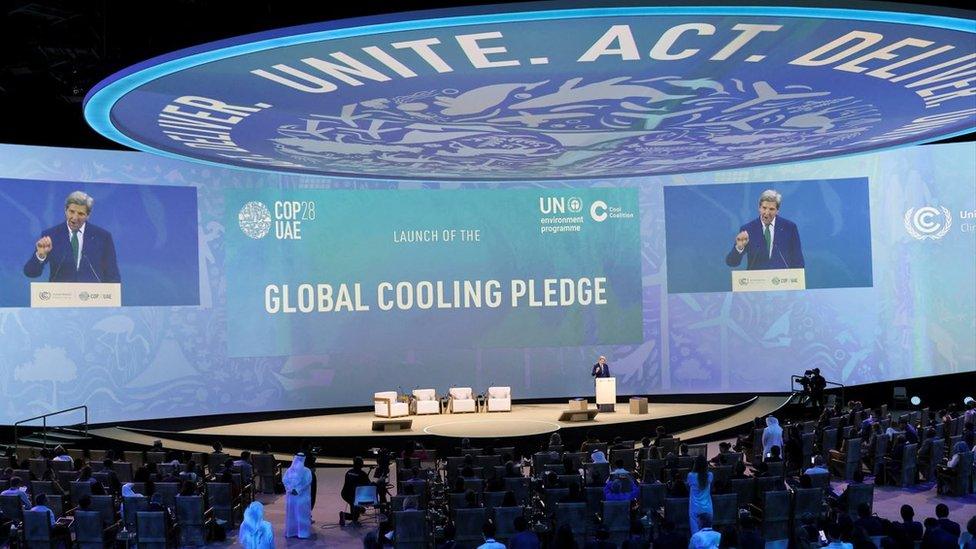
US Special Envoy for Climate John Kerry told COP28 that "you can't get to net zero in 2050 without some nuclear"
For all the concerns about the cost of nuclear power and its hazardous by-products, it is zero-carbon - and has become the talk of the COP28 climate summit as a replacement for fossil fuels.
At the conference in Dubai, a joint declaration, external on nuclear power was signed by more than 20 countries from four continents, including the USA, UK, Canada, Japan, France, Sweden, Ukraine and the United Arab Emirates.
The countries said nuclear energy would play a "key role" in achieving net zero and keeping global temperature rises down, and aimed to triple global output.
US envoy John Kerry told the conference that "you can't get to net zero 2050 without some nuclear" - and indeed that there was "potential in fusion to revolutionise our world".
What about renewable energy?
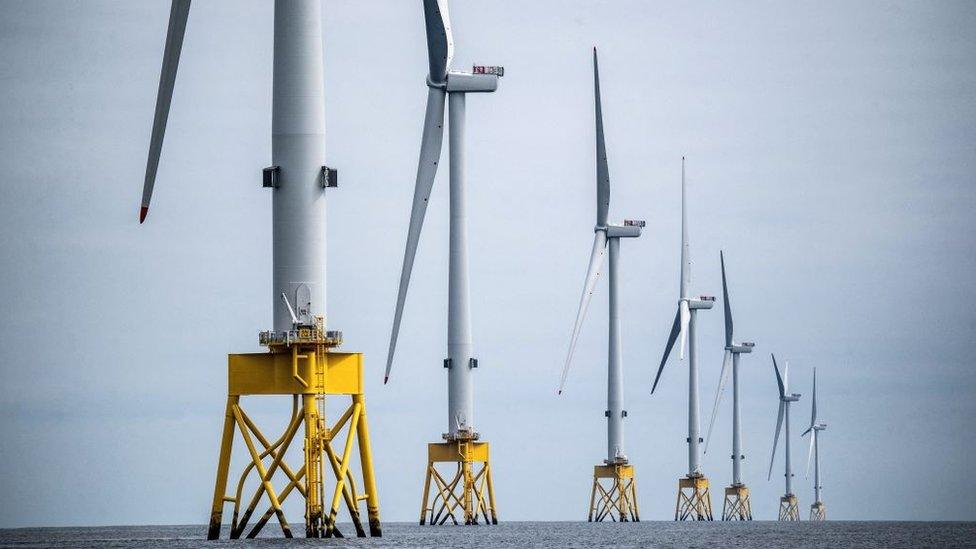
Offshore wind farms are a key part of Scotland's renewables industry
Ministers often talk about the "energy mix", and how it changes over time - the extent to which sources like renewables, oil and gas and nuclear balance out to cover the country's energy demands.
It's all very well having huge quantities of renewable potential - which Scotland undoubtedly has, for all there has been a lengthy dispute at Holyrood about exactly what the right figure is.
But there are peaks and troughs when the sun is shining and the wind is blowing, or not. Sometimes not enough power is generated, and sometimes too much.
At the moment there is not much capacity to store surplus energy, and a single power line from Beauly to Denny carries huge quantities of energy south from the Highlands.
Efforts are continuing to develop new infrastructure, but are frequently unpopular with communities - consider the objections to plans to build pylons through the Mearns.
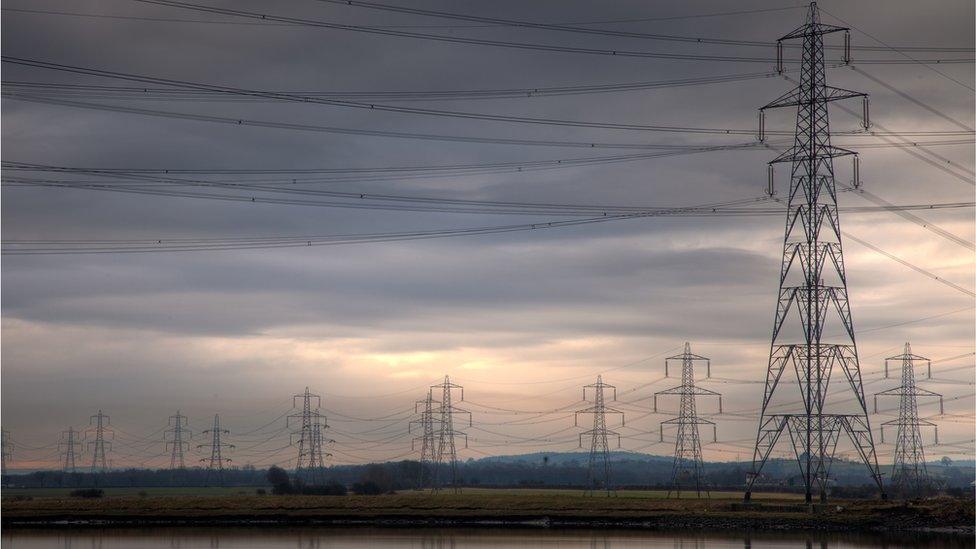
Efforts are continuing to upgrade the UK's energy grid infrastructure
Energy analyst Helen MacInnes told BBC Scotland that the UK was "paying generators to shut off our wind farms because we are unable to transport the vast amounts of good energy being generated".
"We haven't been future-proofing our grid and strategising what the grid will look like in 10 or 15 years time," she said.
"We have some very ambitious targets when it comes to the renewables portfolio, but in terms of delivery we are falling very far short."
Into all of this comes the potential for nuclear energy to provide a "baseload" in a low-carbon energy system, taking the place of fossil fuels.
Prof Rebecca Lunn - an expert in civil and environmental engineering at the University of Strathclyde - pointed to the fact nuclear reactors pump out a steady supply of zero-carbon energy.
She said: "It has its disadvantages, but it produces steadily and that means we can use nuclear energy during periods where we don't have much renewables.
"It's always there steadily producing, and between that and what storage we can achieve on today's technology it means we'll always be able to supply energy."
What's the UK government's position?
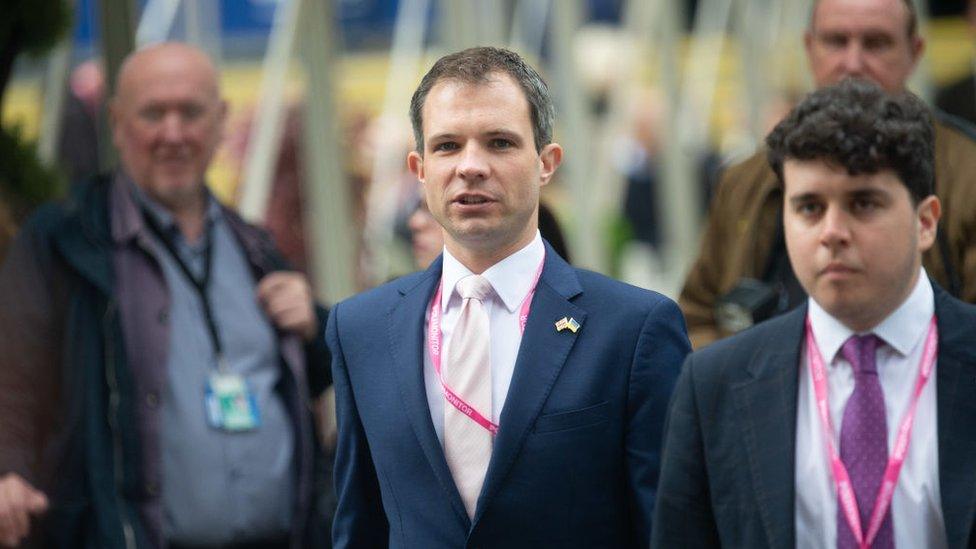
Andrew Bowie is the UK nuclear and networks minister - but cannot push forward plans in Scotland
The UK government is firmly in favour of new nuclear, having committed to fresh developments at the Hinckley Point and Sizewell plants.
Plans are also being advanced for a new generation of smaller reactors.
The minister for nuclear and networks, Andrew Bowie, this year resurrected the Great British Nuclear body to coordinate the industry in the UK.
The Aberdeenshire MP told the BBC's Podlitical podcast that nuclear energy would help the UK get to net zero, while creating "high-wage, high-skill jobs in an industry which will invest in local communities and in economies in parts of the country which desperately need these jobs and this investment".
He said: "It is clean, it is safe, it's secure, and it will deliver energy for generations. Yes, it is expensive to build, there is no doubt about it, but it is an expense we cannot afford not to spend.
"So we are determined to push ahead with it, and the public are behind us."
What's happening in Scotland?
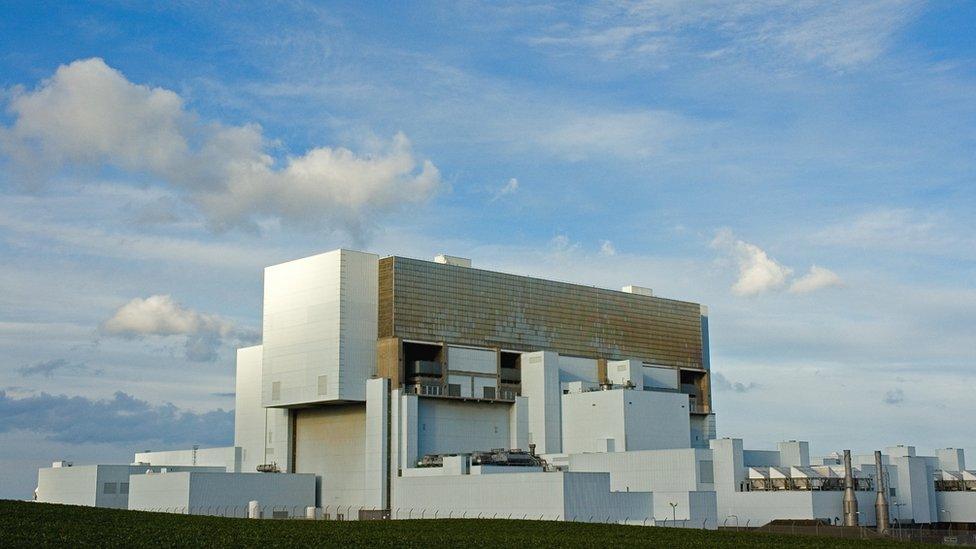
The Torness nuclear power plant in East Lothian is currently due to close in 2028
First Minister Humza Yousaf has spent the best part of a week at COP28, and his government is keen to push ahead with most carbon-cutting initiatives.
However they could not be further from embracing the declarations on nuclear energy.
Scotland has one remaining active nuclear power plant - at Torness in East Lothian - and it is slated to close by 2028. After that there will still be nuclear in the energy mix here, but it will be generated south of the border.
That's because while energy policy is largely set at Westminster, planning powers are devolved to Holyrood, meaning the Scottish government is able to block projects it opposes - including all involving nuclear power and fracking.
This week, Energy Secretary Neil Gray told MSPs that nuclear was expensive, unsafe and not wanted north of the border.
Mr Gray said: "It's not needed in Scotland - we have abundant natural energy resources and capital which can contribute to our energy mix, and as we are seeing from experiences elsewhere in the UK, new nuclear power takes years if not decades to become operational and will push up household and business energy bills even more.
"We know the Tories care little these days about achieving a pathway to net zero, but this SNP government still does and we believe significant growth in renewables, storage hydrogen and carbon capture provide the best pathway to net zero in Scotland."
Could this position change?
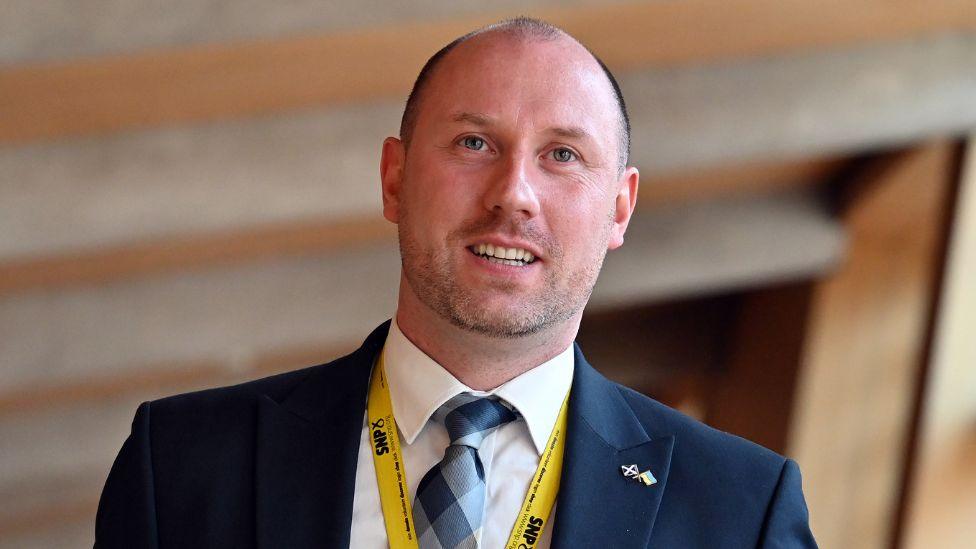
Energy Secretary Neil Gray insists that nuclear energy is "not needed" in Scotland
The UK government has not hesitated to push back against Scottish ministers in recent years - think of the move to block gender reform legislation, the refusal to pave the way for a deposit return scheme, or the "levelling up" funds which circumvent Holyrood.
But Mr Bowie says this kind of "muscular unionism" will not be applied when it comes to nuclear energy.
He said: "I respect devolution and I'm not about to re-open the Scotland Act or rewrite the devolution settlement, and I have to accept that the SNP and the Green Party are the democratically elected government of Scotland, and this is their position. I'm just encouraging them to change that position."
Scottish sites are looked at when possible locations for reactors are being considered, but no plans for them will be put forward until they have backing at Holyrood.
This commitment to devolution will cheer Scottish ministers, but they do still face pressure to change their minds.
For all that he respects their authority over the matter, Mr Bowie has been scathing - he told a recent event at Holyrood that the block on nuclear developments here was "an act of economic vandalism" and "bordering on criminally negligent".
Pressed on this, he said: "I just simply do not understand the mindset or the rationale, and that's why some of the language I used last week was as strong as it was."
However with the Greens firmly embedded in the Scottish government, there is little prospect of any shift at Holyrood.
Green minister Patrick Harvie told BBC Scotland's Sunday Show that nuclear energy was "always going to be expensive and risky".
Those concerns about risk have been underlined by reporting in the Guardian, external about an alleged cyber-attack on Sellafield, the site which stores much of the UK's nuclear waste.
The facility has denied, external there is evidence it had been "successfully attacked by state actors", but Mr Bowie conceded that stories like this are "sub-optimal" and that he had been working with the Nuclear Decomissioning Authority to deal with issues raised by the newspaper.
- Published2 December 2023
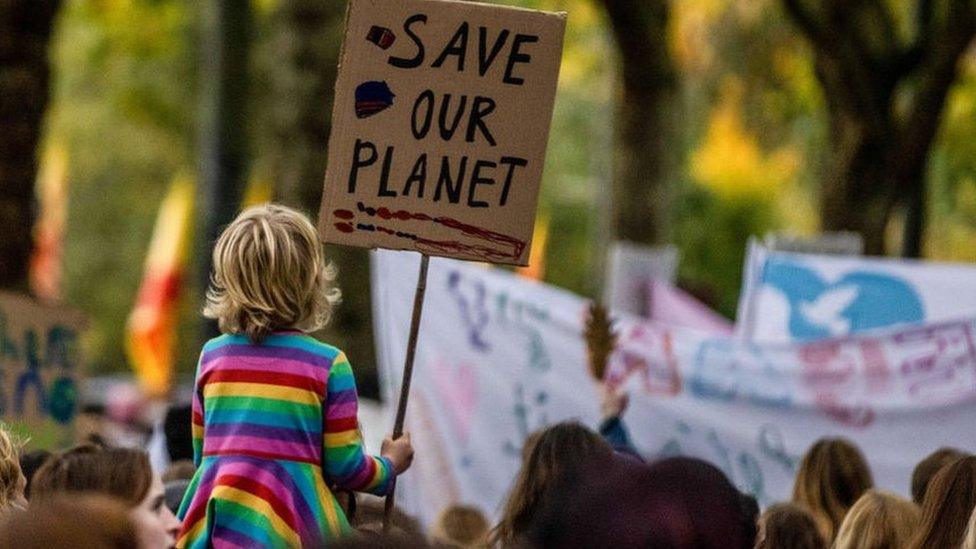
- Published27 October 2023
